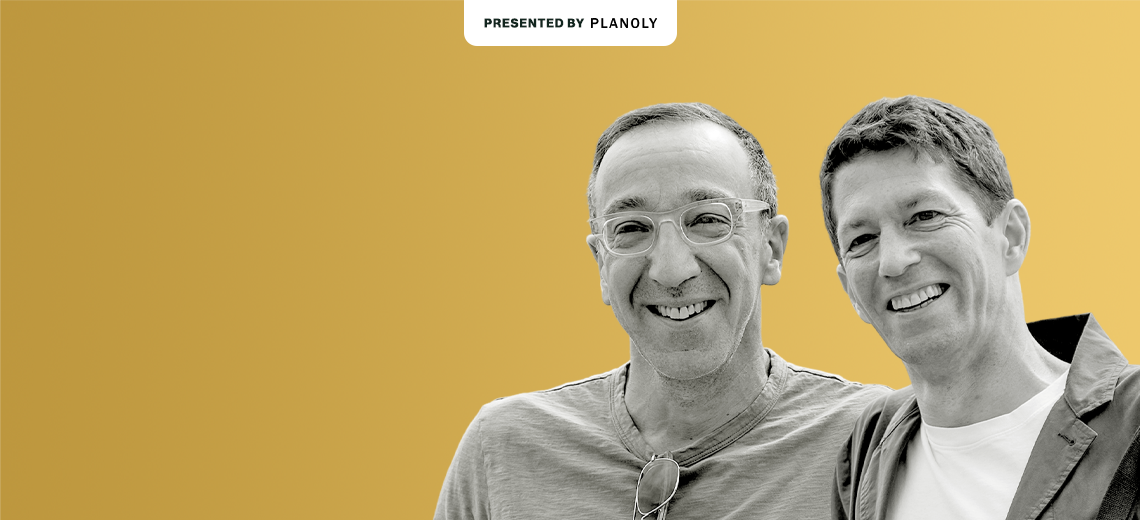This is an episode of the Glossy Beauty Podcast, which features candid conversations about how today’s trends are shaping the future of the beauty and wellness industries. More from the series →
Subscribe: Apple Podcasts | Stitcher | Google | Spotify
While emerging from a decade dominated by sans-serif typeface and millennial pink, it may be hard to remember a time when an ode to simplicity could make a brand stand out. But when Malin+Goetz, a natural apothecary beauty brand, was founded in 2004, its “less is more” approach at a time when the market was about “more and more” initiated the brand’s journey.
“We came at it from a minimalist, different direction, not only in our packaging and design, but also in our formulations and the protocols,” said Matthew Malin, Malin+Goetz co-founder, on the latest Glossy Beauty Podcast. “Nobody was doing unisex [in beauty] at that time.”
Eighteen years later, in a Covid-19 riddled world, Malin+Goetz has once again proven that it’s not afraid to take the road less traveled. In this case, that’s meant opening a retail location in Williamsburg, after the beauty industry saw a wave of door closures.
“If a store doesn’t have something special, which includes beautiful design, wonderful brands and products, and great service, it’s going to be challenging in the post-Covid world,” said Andrew Goetz, Malin+Goetz co-founder (and Malin’s partner) on the podcast.
And while the new normal, and how brands respond, may be uncharted territory, Malin+Goetz expects to take a multifaceted approach in its appeal to the consumer. The brand’s brick-and-mortar stores, luxury hospitality partners and e-commerce play via its own site and Amazon “are all important aspects of how to be a successful brand,” said Goetz. “Being able to support that customer through those different channels is critical.”
Below are additional highlights from the conversation, which have been lightly edited for clarity.
Filling a void
Malin: “Our [unisex] concept was not brand new, but [we] reinvigorated something that had always been [interesting to] us in the past. We focused on [asking], ‘How do you create a product that anyone can use by eliminating things that were otherwise creating irritations to the skin?’ and then, finally, focusing on a mom-and-pop idea of the neighborhood and doing something special and unique. All of these things together — encompassing this uncomplicated idea [of skin care] for a man or woman — made it easy.”
The tightrope walk between expediency and exclusivity
Goetz: “The new luxury is expediency: How quickly can I get it? And on the other hand, we’re firm believers in exclusivity and that, if you are everywhere, you lose a lot of the integrity about what makes a brand special. It’s a fine balance. And I don’t know that we have a direct answer for that. We learn as we go, and brands evolve over time. But in general, we embrace exclusivity. You have to discover it or maybe work a little bit harder [to find it]. But, I mean, how hard is it to go online and get it? At that point, it’s a question of: How quickly can you receive it? Usually, people want instantaneous gratification. But on the other hand, nothing is going to beat the store experience, when you’re there with one of our associates who can walk you through the whole brand and all the products and find the right products for you. And it becomes a much more joie des provisions, or the joy of shopping.”
If you can’t beat Amazon, join ‘em
Malin: “We entered Amazon pre-pandemic, and it was because of our amenity program. What was happening is that, if you were staying in a hotel and you liked our shampoo, then you went online to buy it. Wherever you lived, you either couldn’t ship it to your address or it would get there in a week. But if you could go on Amazon and get it the next day or the same day, you felt immediate gratification. Our website, given our size, couldn’t offer that. And our stores and website started to compete with the Sephoras of the world or Nordstroms. [So we had to find out how to] fulfill those immediate needs from consumers. Amazon picks up the slack.”




